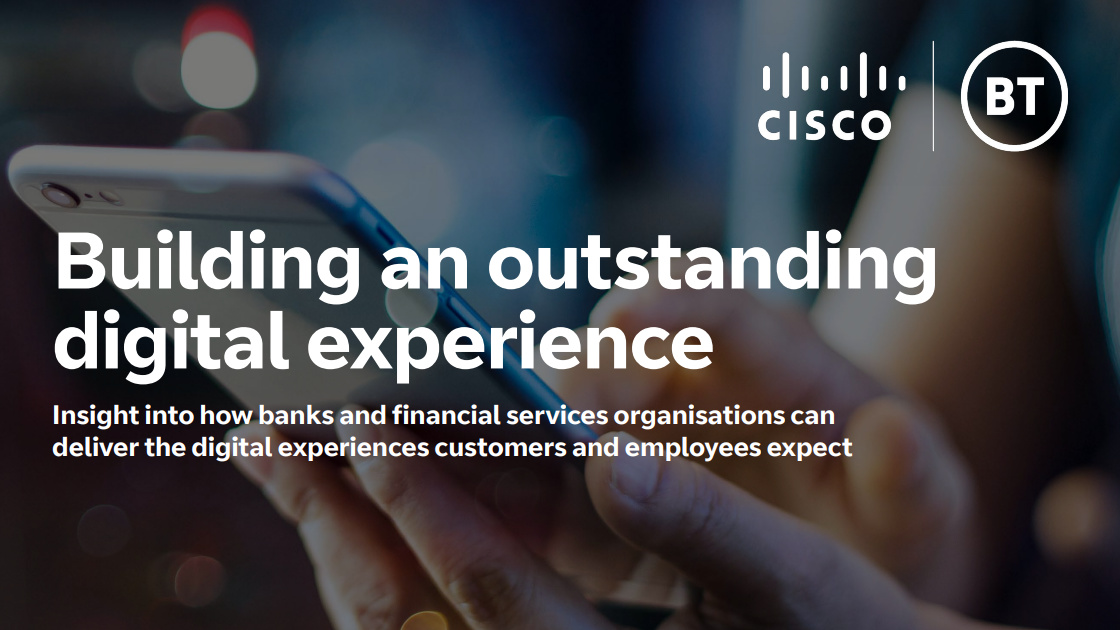What is open banking and why does it matter to your business?
This new way of offering financial services opens up opportunities to businesses, developers and consumers


The UK banking sector may be one step ahead of the US industry, launching technologies such as Chip and PIN before our Atlantic counterparts, but it's still a whole lot less open than our European friends. That could be about to switch though, with open banking regulations coming into force in 2018.
Open banking refers to new rules that give financial providers, such as banks, secure access to your information via APIs (application programming interfaces) that import the data they hold into third party apps and services.
Allowing access in a secure environment means you will be able to take advantage of a wider range of personalised products and services that specifically meet your needs. It's a huge shift in the way both consumers and businesses bank, offering new opportunities for financial firms and better matched financial management and products for us, helping us manage money according to our circumstances.
Reports have already revealed the impact it could have on the economy. For example, the Centre for Economics and Business Research (CEBR) thinks the introduction of secure banking platforms will add an additional 1 billion to the UK's economy. Despite relying on automation, it could have a positive impact on the recruitment industry too, creating 17,000 new jobs.
"By improving the transparency of current account data, open banking means more third-parties will have access to customer data, which can lead to a reduction in the risk premium currently charged on interest rates linked to products such as mortgages, due to a clearer understanding of a person's underlying credit risk," said Cristian Niculescu-Marcu, head of micro-economics at CEBR. "Our analysis suggests open banking will have a positive impact on UK GDP as additional funds become available for productive use in the wider economy, but the degree to which these economic benefits are realised is dependent on the readiness of consumers to consent to sharing data."
Indeed, the think-tank noted such benefits will only be realised if Brits are willing to share their data and previous research by Accenture suggests seven in 10 people currently aren't willing to share their banking details with third party companies. Similar results were found by Clydesdale and Yorkshire Banking Group, which discovered eight in 10 people were wary of open banking and half had never heard of it.
What is open banking?
At its core, open banking is about large, traditional banks opening up the data they hold on customers to allow new products and services to be created, backing all of that up with stringent technical standards. Such data sharing will only be with customer approval and only to companies that have been vetted by the Financial Conduct Authority.
Get the ITPro daily newsletter
Sign up today and you will receive a free copy of our Future Focus 2025 report - the leading guidance on AI, cybersecurity and other IT challenges as per 700+ senior executives
"It will allow customers to share their financial transaction data with authorised third parties, and allow authorised third parties to initiate payments from their bank accounts," says Ross Dalzell, head of business banking product and propositions at Barclays.
Open banking is driven by two regulatory changes. The first is the Open Banking remedy of the Retail Banking Market Investigation Order 2017, under which the Competition and Markets Authority outlines API standards. The other is the Second Payment Services Directive (PSD2) which requires banks to allow third-party access for payments.
The regulatory changes only apply to the nine major banks: Allied Irish Bank, Barclays, Bank of Ireland, Danske, HSBC, Lloyds, Nationwide, Santander and RBS. The rollout started on 13 January 2018, when banks and the FCA-approved third-parties started testing products, athough five of the nine needed an extension to that deadline. The new services will start to become available in March 2018, though it will take time for apps to be developed and users to take up such services.
What does this mean for businesses?
The changes open up the ability for third-party companies to build apps and services on top of banking. For example, if you have accounts with multiple banks, you could get an app to see them all in one place. Comparison sites could make it easier to compare financial services in one place and clever developers could create apps that have more features than existing banking apps, such as spending alerts, chat bots, or AI for automated financial controls.
What does this mean for businesses? Hopefully easier financial management. "Although we are only at the beginning of the Open Banking journey, the possibilities for small and medium enterprises are quite profound," said Dalzell. "We expect to see lots of new and innovative tools that benefit businesses in a number of ways. These include tools that provide insights to help SMEs manage their money, that improve comparisons of products on offer, and that use the convenience of open banking to remove laborious and administrative tasks, allowing customers to focus on growing their business." Add that into existing data be it insurance, credit, shopping or anything else and the "possibilities start to grow exponentially," Dalzell added.
So far, Barclays is using the change to offer businesses a directory of connected apps all "carefully chosen", he says to better link bank accounts with bookkeeping, marketing and more. "As for the rest of the market, while it's hard to pin down exactly where the financial technology industry will focus its efforts at this early stage, there are a few emergent propositions we expect to see in the short term," Dalzell says. "For example, digital comparison tools could enable much easier assessment of complex products such as loans, overdrafts and current accounts, and payment initiators could compete with the card payments space, potentially offering cheaper alternatives for SMEs to send and collect money."
What about security?
This banking revolution only happens if we decide to take part: banks can only share your data if you expressly allow it and, as the Accenture report noted, 69% of British consumers said they wouldn't share their banking data with a third-party. Why not? Three-quarters cited the data protection risks, while seven in ten said they were concerned about online cyber attacks.
Key to security is that the British Open Banking model doesn't mean you have to hand over banking logins to the third-party, but your bank allows access that means key passwords are less likely to be lost, leaked or hacked. "They're trying to introduce a safer model, but it's only going to be as secure as the weakest part," Arxan's mobile application security expert Winston Bond.
Bond said it's difficult for users to assess at a distance if a third-party services supplier is truly secure, especially with new players. The APIs could be a target, as banks are already fending off such attacks, and introducing a middle man "expands the opportunity for that". That said, the core idea of Open Banking isn't new it's already in place in Germany and Scandinavia, Bond noted, and as the change is regulator led, security has been considered with the API standards. We'll have to wait and see whether that's enough to convince Open Banker doubters to try out the services and apps that come out of this regulatory revolution.
Freelance journalist Nicole Kobie first started writing for ITPro in 2007, with bylines in New Scientist, Wired, PC Pro and many more.
Nicole the author of a book about the history of technology, The Long History of the Future.
-
 Bigger salaries, more burnout: Is the CISO role in crisis?
Bigger salaries, more burnout: Is the CISO role in crisis?In-depth CISOs are more stressed than ever before – but why is this and what can be done?
By Kate O'Flaherty Published
-
 Cheap cyber crime kits can be bought on the dark web for less than $25
Cheap cyber crime kits can be bought on the dark web for less than $25News Research from NordVPN shows phishing kits are now widely available on the dark web and via messaging apps like Telegram, and are often selling for less than $25.
By Emma Woollacott Published
-
 Unlock the potential of LATAM’s booming crypto market
Unlock the potential of LATAM’s booming crypto marketwhitepaper Strategic pathways for crypto companies looking to expand into Latin America
By ITPro Published
-
 The customer knows best: How to ensure you’re delivering an effective digital payments experience
The customer knows best: How to ensure you’re delivering an effective digital payments experienceSponsored Tap into shifting customer trends with account information services that will give your business a competitive edge
By ITPro Published
-
 How AI is accelerating digital transformation in the banking industry
How AI is accelerating digital transformation in the banking industrySupported Content Gen AI, fraud detection, and chatbots are all transforming the financial industry, but the cloud is the foundation for it all
By Bobby Hellard Published
-
 What open banking means for the future of online transactions
What open banking means for the future of online transactionsOpen banking offers a faster, more automated future for transactions – but it has a rigid legal road to traverse
By ITPro Published
-
 Embracing the future of financial services
Embracing the future of financial servicesWhitepaper Embedded Finance is leading the way. Discover how merchants could stand to gain the most.
By ITPro Published
-
 The online cash revolution
The online cash revolutionwhitepaper Why adding eCash to the checkout unlocks more growth
By ITPro Published
-
 Building an outstanding digital experience
Building an outstanding digital experiencewhitepaper Insight into how banks and financial services organizations can deliver the digital experiences customers and employees expect
By ITPro Published
-
 How payments support the growth of software platforms
How payments support the growth of software platformswhitepaper Discover how Paysafe can help drive the growth and success of your software platform
By ITPro Published